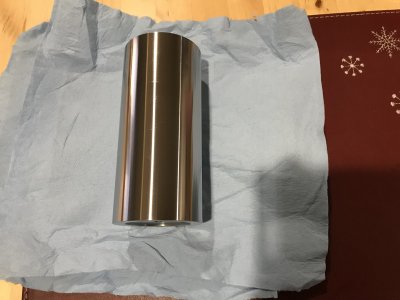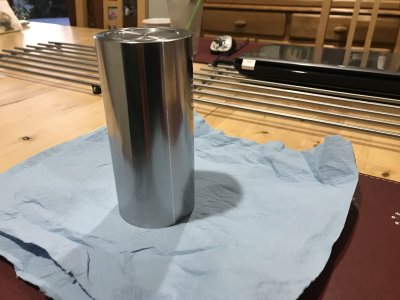100% If I were looking to buy something with single-micron levels of precision on 4 sides and <0.0001 degrees-over-length out square for a job:
A typical high end steel square with a cert you can rely on (say Starrett master precision square or Mitutoyo) will be within .0001" over 6" inches. A granite square is 1/2 or 1/4 that depending on the grade. It would be usually be considered as something for you need greater accuracy so if you couldn't rely on its grade certs, whats the point? At last that is the normal context of granite squares and what was behind my comment....none of which means you can't use one and be happy doing do...it just explains the context of my post. Still, what's it do for you if you don't know or can rely on its tolerances?
btw, my grinding comment was for orginated squareness with a grinder on steel. Granite stuff is lapped and imo isn't at all straightforward
The major manufacturers that I know are not going to be interested in talking to me for a one-off. I'm coming from a hobbyist background
Sure they will. Starrett are fantastic, will talk to you and sell to you (at least thats my experience). Mitutoyo are a bit customer unfriendly, but they will still tell you where buy it and have a conversation about their items. Also, places like KBC will get you anything whether or not its in there catalogue. Mit only sells through distributors (grrrr) but if you call KBC they will get for you anything Mit makes. (something does not have to be in the KBC catalogue for them to source for you, hobby guys included)
A project in-and-of itself, and then something to use to measure and square built tools and products.
There are ways to do this yourself - create squareness. I went through the precision stage, and its enjoyable and you learn a bunch However except for reconditioning and spindle making I don't find there is much need to go there in general shop work. One good square to .0001 that is only used for inspection should cover almost all the bases. Nevertheless, with nothing but a good plate and tenths indicator you can create squareness to better than a tenth over 6". Might be a good project if thats your interest and then you'll have a reference you can rely on.
A cheap import would "do" for what I need;
I would say its not the price that matter so much as knowing and relying on the tolerances of each component; plate, square, etc. This is where the offshore items and precision often don't mix well if you can't rely on the the claimed flatness, squareness etc. In other words, imo, what any of us need for any given task as to know what the accuracy is a task requires and what the accuracy of the tool is....which of course can vary greatly from task to task
I feel like I'm probably coming across as argumentative; thats not the intent. I've just got a fair bit of experience with this and am trying explain how it works and so on. If you have specific applications, myself and many other skilled guys can give ideas on how to measure and check squareness






